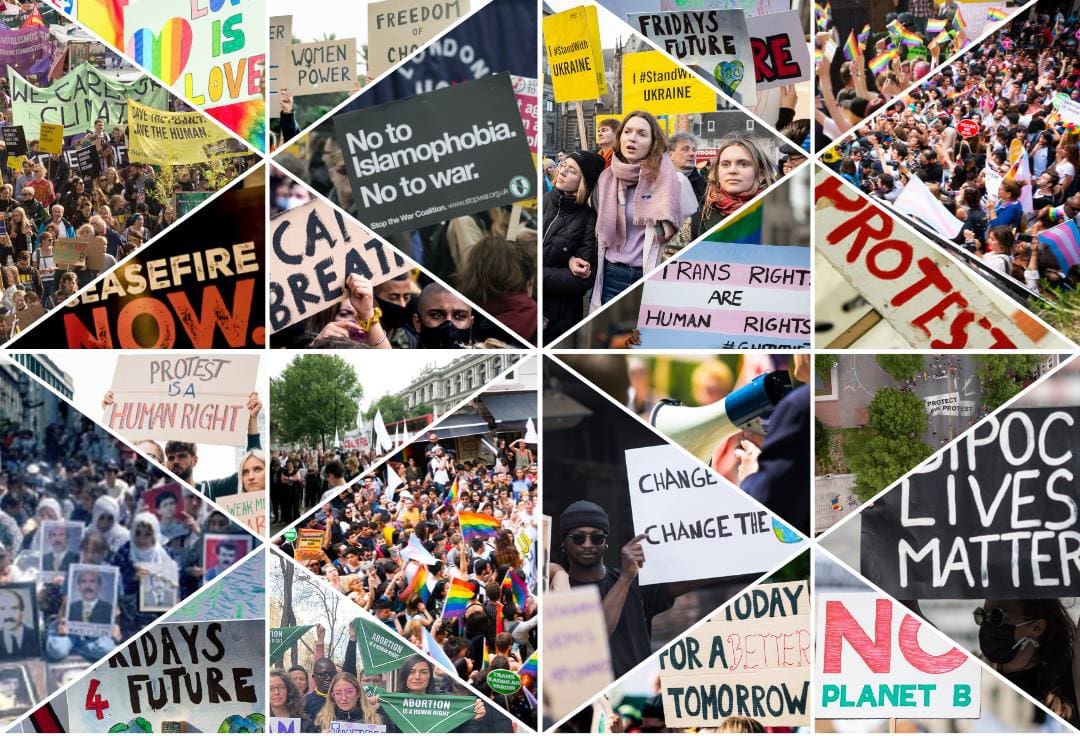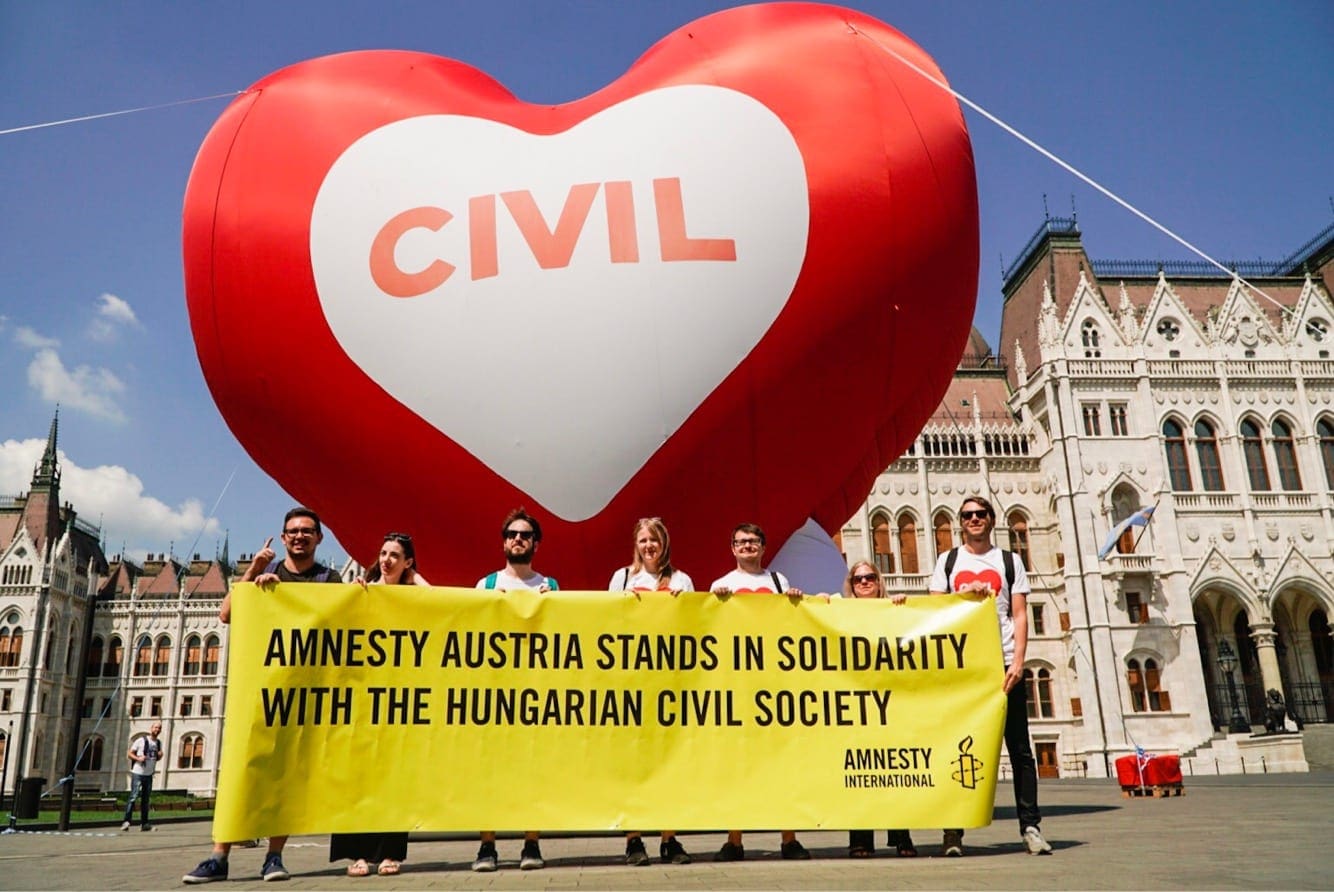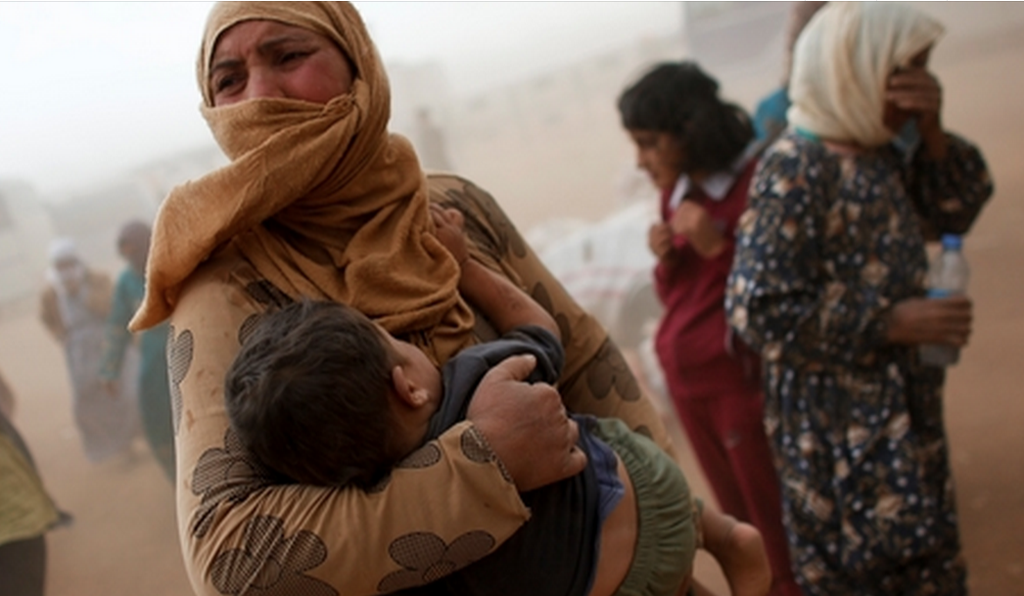Monday 4 June, Amnesty International placed a giant heart balloon outside the Parliament in Budapest. The 10x10x5 meter red heart was there to tell Hungarian MPs that people working for a fair and safe Hungary need to be protected, not attacked or threatened. Therefore, the draconian legislative proposal submitted by the government to the Parliament – dubbed ‘Stop Soros’ and aiming to criminalise those helping refugees and migrants and to instil fear and silence civil society – must be voted down.
.
The face of the heart balloon installation was the “Civil” symbol – – logo of over 250 organizations working in coalition in Hungary for rights and freedoms.
The giant heart is a symbol of the strong and heartfelt worldwide support for civil society, organisations and activists, working for a Hungary that is fair and safe for all. More than 22,000 people from 50+ countries around the world have sent messages of support to NGOs in Hungary both offline and online, which have also been collected in a booklet of solidarity that was handed over to MPs.





